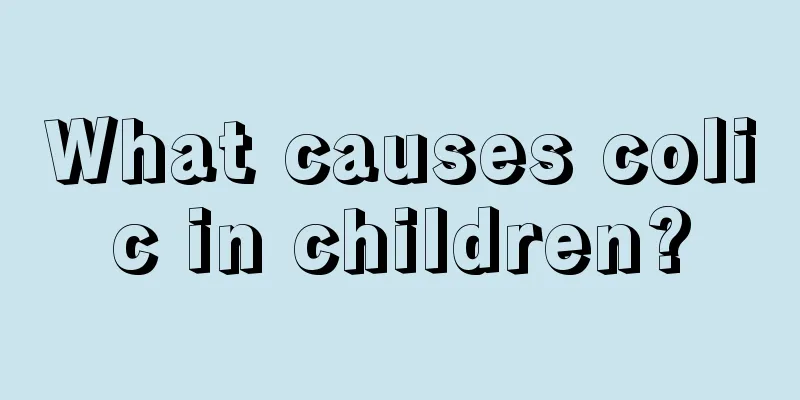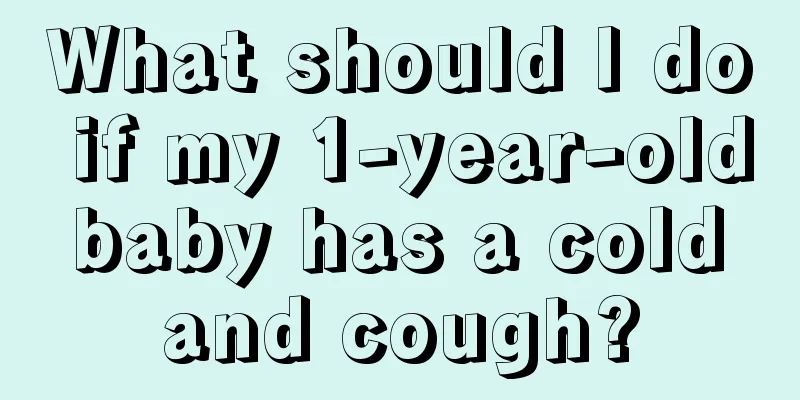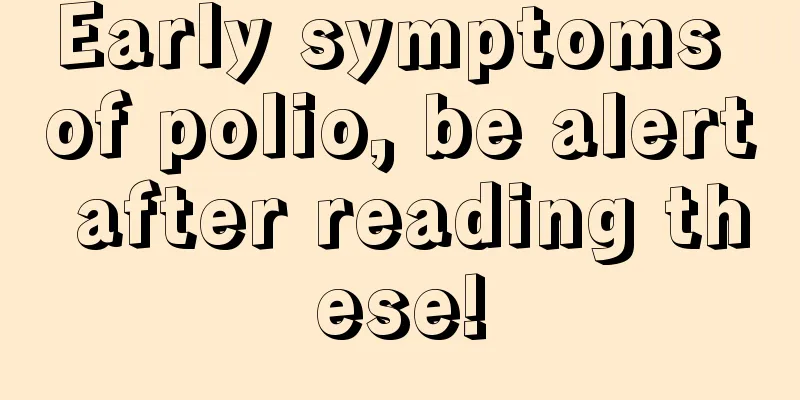What to do if the baby's fever does not go down after taking antipyretics

|
If the baby's fever does not go down after taking antipyretics, parents and friends will definitely be very worried. So what should we do if the baby's fever does not go down after taking antipyretics? Next, this article will introduce relevant content in this regard for your reference only. If you want to know what to do if your baby’s fever doesn’t go down after taking antipyretics, you may want to take a look! Please see the detailed introduction below. What should I do if my baby’s fever doesn’t go down after taking antipyretics? It takes some time for antipyretic medicine to take effect, and the time it takes to take effect varies from person to person. Generally speaking, it takes half an hour to an hour to take effect. Children with more severe fever may need longer time to take effect, and they are prone to recurring fevers. When many parents see that their baby's fever is not going down quickly, they will give their baby an extra antipyretic pill, or add other antipyretic pills or cold medicines containing antipyretic ingredients. This is very dangerous. Therefore, parents must strictly follow the drug instructions when giving antipyretics to their children. In addition, there are many reasons that cause a baby to have a fever. Antipyretic drugs can only play an auxiliary role in reducing the temperature, but cannot cure the disease. If the cause is not identified and symptomatic treatment is not given, the baby's fever symptoms will recur. The causes of baby's fever include ENT inflammation, roseola, vaccination, sepsis, urinary tract infection, encephalitis, meningitis, gastroenteritis combined with dehydration, etc. For example, the most typical and most threatening symptom of children with meningitis is that they can easily have a high fever of over 39°C. It is also accompanied by mental fatigue, dull eyes, poor appetite, and even cramps. Drugs to lower blood pressure in the brain and to fight viruses are usually given. Children hospitalized with meningitis need to be treated with antibiotics and it takes about 2 to 3 weeks to recover. In short, there are many reasons for a baby's fever, and antipyretics can only treat the symptoms but not the root cause. If the baby's fever still does not go down normally after using antipyretics and the fever recurs, parents should take the baby to the hospital in time to find out the cause so that symptomatic treatment can be given. The above is an introduction on what to do if your baby’s fever does not go down after taking antipyretics. From the above introduction, we can know that it takes some time for the antipyretic medicine to take effect on the baby, so parents should not be too impatient. In addition, there are many reasons that cause a baby's fever. In some cases, taking antipyretic drugs alone will not work. At this time, it is recommended that parents take their children to the hospital for treatment in time! |
<<: How to remove baby non-pigmented moles?
>>: What is the normal hemoglobin level in children?
Recommend
What are the free pediatric vaccinations?
With the rapid development of the economy, the in...
What is the reason for the green stool of a two-month-old baby?
Metabolism is a physiological characteristic of h...
Can I give my child a bath when he has a fever?
Because babies have weak body resistance, they of...
What to do if your child crosses his eyes
You may not understand the meaning of crossed eye...
What causes baby's eye bags to swell?
The baby has swollen eye bags, which can also be ...
What should I do if my child has a high fever of 40 degrees?
Generally in summer, children often have fever sy...
What is the reason for children's nosebleeds in autumn?
The climate in autumn is relatively dry. For many...
What should I do if my child eats some desiccant?
Parents should pay special attention to their chi...
What to do if the baby's legs are scratched
When children are playing, they may cry and screa...
What to do if children have blackheads on their noses
It is actually very common for adults to have bla...
Why doesn't my baby gain weight after eating?
As people's diet is getting better, many pare...
Baby vomits yellow-green mucus
It is very common for babies to spit up in daily ...
Where do children come from?
When we were very young, we always asked our pare...
Black vertical lines on children's nails
During the growth of children, parents must pay a...
What should I do if my baby has torticollis? How to correct torticollis
Baby torticollis is mainly caused by congenital h...









